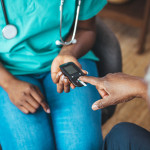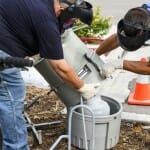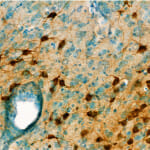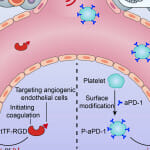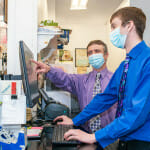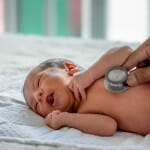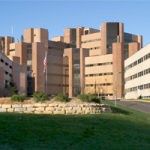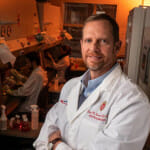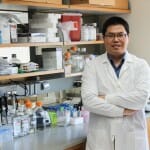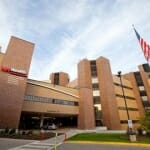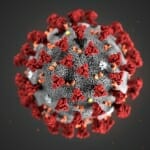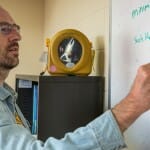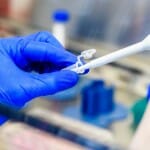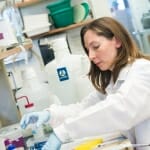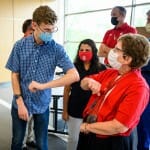Tag Health & medicine
Update from UW–Madison experts on bird flu spread
UW experts are assisting efforts to track and research the virus with an eye toward minimizing risk to human health and protecting the state’s agricultural sector.
Type 2 diabetes may contribute to racial disparities in colorectal cancer among Americans
The findings underscore the value of colonoscopies and other colorectal cancer screenings, especially for Black and lower-income Americans who on average suffer worse outcomes after a cancer diagnosis.
Lauren McLester-Davis becomes UW’s first director of Indigenous science advocacy
In this new position, she will weave together science addressing Alzheimer’s disease and dementias, metabolism, and cognitive aging among Indigenous populations in Wisconsin, and other groups often underrepresented in research.
Wisconsin named National Center of Excellence for wastewater surveillance
Community-focused wastewater surveillance is a cost-effective tool for public health practice. It involves looking for the presence of pathogens that people shed in sewage, whether or not they have symptoms, and measuring the pathogen levels over time.
Health care on the home front: UW grads remain in the state to keep Wisconsin well
Doctors, nurses and pharmacists educated and trained in the UW’s health sciences programs are working in every one of the state’s 72 counties.
Newborn Screening Program on UW–Madison campus helps millions
These newborns have had their dried blood spot samples tested at the Wisconsin State Laboratory of Hygiene on campus for a variety of rare, serious disorders that, left untreated, can lead to severe health issues and sometimes death.
UW Carbone Cancer Center conducting breast cancer vaccine clinical trial
The trial is testing a novel vaccine, developed by Dr. Nora Disis at the University of Washington in Seattle, designed to prevent the recurrence of triple-negative breast cancer.
Lab-grown retinal eye cells make successful connections, open door for clinical trials to treat blindness
The most common retinal cell types forming synapses were photoreceptors – rods and cones – which are lost in diseases like retinitis pigmentosa and age-related macular degeneration, as well as in certain eye injuries.
Non-invasive liquid biopsy tracks cancer treatment success in real time
These blood tests could help physicians better treat their patients by allowing them to see which treatments are working in real time without the need for repeated, invasive biopsies of solid tumors.
Drone-delivered defibrillators could save lives
The new research details the framework for designing a network of AED-outfitted, autonomous flying drones, which could allow the life-saving devices to more quickly reach people experiencing cardiac arrest.
Flexibility may be the key to potent peptides for treating diabetes
New research suggests that the peptides — short chunks of protein — used to treat Type 2 diabetes may be more effective if they’re able to flexibly move back and forth between different shapes.
With high-risk, high-reward investment, UW–Madison researcher seeks to outwit cancer’s resistance to treatment
Sequencing the tumor samples’ genetic material will allow the researchers to map changes in individual tumors that became resistant and discern possible common mechanisms of resistance across multiple tumors.
Breast cancer researchers learn how to teach an old drug new tricks to help patients
UW researchers have uncovered a key feature of breast cancers that renders them either vulnerable or resistant to paclitaxel treatment, which could help identify which patients are most likely to see success.
Chancellor gives a big ‘thank-you’ to those behind COVID-19 testing
When the COVID-19 pandemic threw the world into turmoil in the spring of 2020, the experts at the Wisconsin Veterinary Diagnostic Laboratory and the Wisconsin State Laboratory of Hygiene instead got to work.



